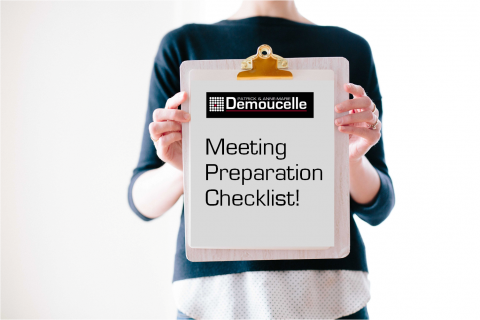
Is your team spending a lot of time in meetings? Do the meetings seem to involve too many people, go on for too long or fail to result in clear next steps? Are they stressed because they don’t have enough time to get on with other tasks?
If so, we have a simple solution.
Just like every good scout and guide, the motto of every good meeting organiser and participant, should be: ‘Be Prepared’!
Yes, your team will say they are rushed off our feet. Yes, there are too many meetings in their agenda, and yours! But if they are already struggling to keep their heads above water, why make the situation worse by making their time spent in meetings utterly inefficient: lots of time wasted without any clear outcome? That’s a recipe for frustration, exhaustion and ineffectiveness.
And yet with preparation – clear definition of meeting goals; time spent considering others’ expectations and challenges; and appropriate ‘scene-setting’ – they can all experience the pleasure of productive and even enjoyable meetings.
To help your team have better meetings and achieve clearer outcomes, we have developed a simple meeting clarification form with 2 times 4 questions.
The first 4 questions are there to ensure your team member facilitating a meeting reaches his or her own objectives during that meeting. For that, it’s critical your team member – meeting organizer:
- has the appropriate credibility for running the meeting (the ‘who’ question)
- is crystal clear on the exact deliverables of the meeting (the ‘what’ question)
- has a very good understanding of WHY these deliverables are so important (the ‘why’ question)
- has a well thought out approach to reach those objectives by the end of the meeting (the ‘how’ question)
Many facilitators give some thought to the 4 aspects above. However, most facilitators tend to forget about the participants… And that’s where it typically goes wrong. To have a good meeting, it’s absolutely crucial to ponder on the same 4 questions (this time from the participant perspective) to make sure:
- the right participants are invited (don’t miss out on the necessary participants, but don’t add unnecessary ones – they have other work to do!) (the ‘who’ question)
- the participants realize why this meeting is important for them (the ‘why’ question)
- they get an answer to their main questions during the meeting (the ‘what’ question)
- the facilitator has reflected in advance on likely negative participant reactions during the meeting (and has reflected on how to avoid or deal with these) (the ‘how’ question)
While answering these 2×4 questions might seem time consuming initially, we are certain your team member–facilitators will discover that this truly is time well spent … and will probably … result in LESS meetings!!
And if they are still sceptical about the power of preparation, perhaps they can at least agree that this strategy can not do any harm, so why not at least give it a try?
Because, as Max Brooks wrote in ‘The Zombie Survival Guide: Complete Protection from the Living Dead’:
“If you believe you can accomplish everything by “cramming” at the eleventh hour,
by all means, don’t lift a finger now. But you may think twice about beginning
to build your ark once it has already started raining.”
Download checklist here
For more or more detailed advice on improving meeting facilitation skills, contact us for a training or coaching.
Photos by Campaign Creators and Christina @ wocintechchat.com on Unsplash

